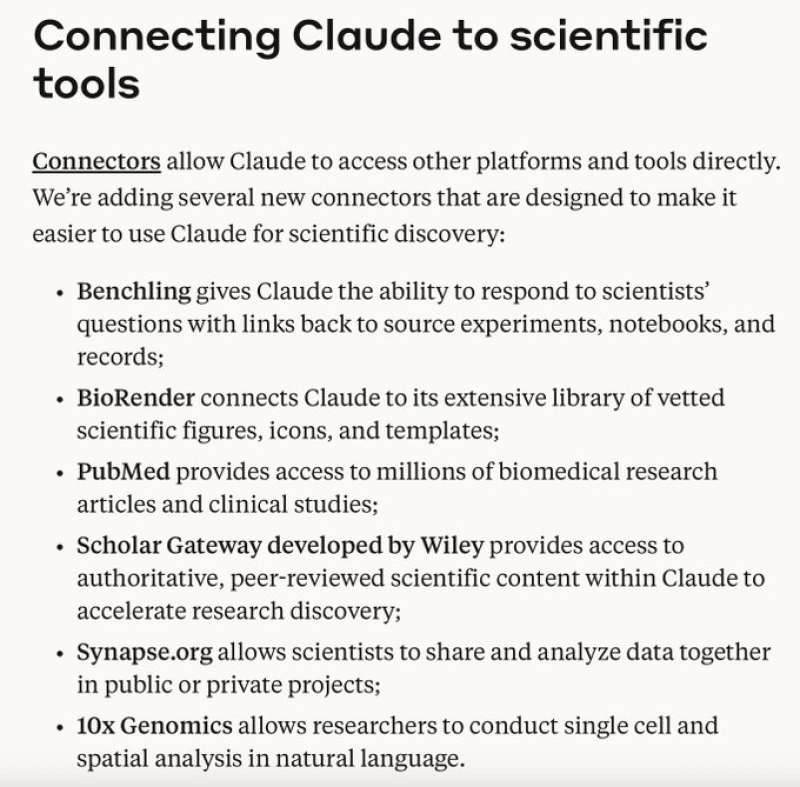● Claude for Life Sciences—positioning their AI as a complete scientific collaborator. The latest Sonnet 4.5 model beats human performance on key research tests, scoring 0.83 versus 0.79 on Protocol QA, and brings powerful connectors that link Claude straight to widely-used research tools and databases.
● The system now works with Benchling, BioRender, PubMed, Wiley's Scholar Gateway, Synapse.org, and 10x Genomics. Claude can pull data, create scientific figures, and cite peer-reviewed papers—a significant move toward embedding AI in regulated lab environments for tasks ranging from protocol design to RNA-seq quality checks.

● But this advancement raises questions. As AI becomes standard in biomedical research, concerns emerge about data security, ethical oversight, and whether smaller labs can compete with well-funded institutions. These challenges echo earlier waves of biotech automation, where infrastructure costs pushed researchers toward better-resourced centers.
● Financially, Anthropic's strategy aims to boost R&D capacity through its AI for Science program, which provides free API credits to research organizations—essentially an alternative funding model that supports innovation without increasing public spending or taxes.
● Looking ahead, Claude for Life Sciences could reshape scientific productivity globally, supporting skilled jobs and accelerating commercialization in biotech and pharmaceuticals.
● As MikeKrieger noted, the launch includes "new bioinformatics Skills and new MCPs," confirming Anthropic's push to connect AI with computational biology. With backing from Deloitte, KPMG, PwC, and AWS, Anthropic is positioning itself at the leading edge of AI-powered scientific discovery.
 Usman Salis
Usman Salis

 Usman Salis
Usman Salis


